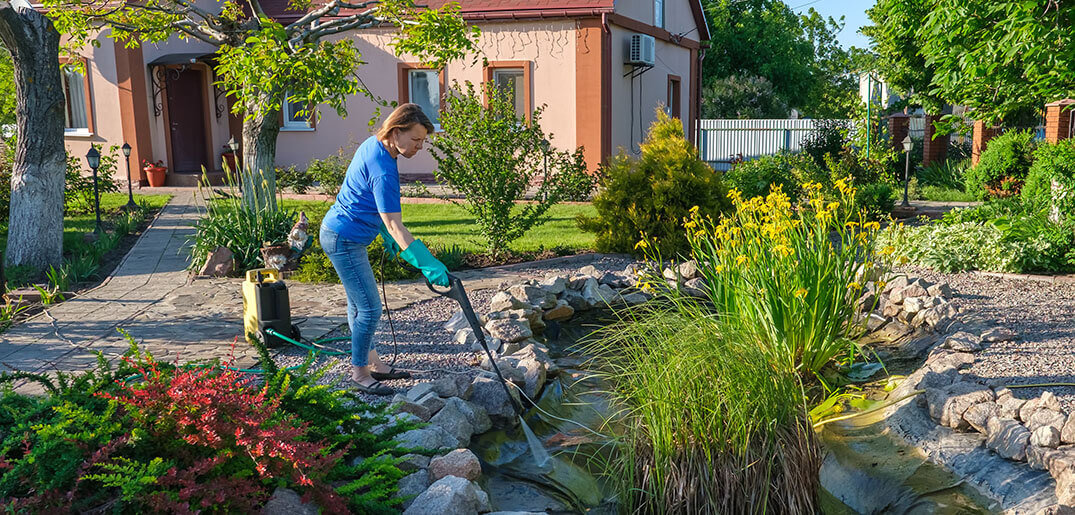Maintaining pond health is key to keeping your pond beautiful and healthy. While it may seem laborious, you can make pond maintenance less time-consuming and tiresome by observing some best practices to keep your pond in the best health possible.
Avoid Overfeeding Your Fish
Overfeeding can throw your pond’s ecosystem off balance when the excess food goes uneaten by your fish. Since fish food is densely packed with nutrients and breaks down quickly, it causes a sharp increase in the free nutrient levels of your pond. In doing so, it creates a haven for harmful bacteria, free-floating algae and the anaerobic sludge layer, all of which feed off the nutrients from the fish food. Additionally, once fish food absorbs water it sinks to the bottom of the pond, adding to the sludge there. To avoid this, a good rule of thumb to remember is that your fish should take no more than five to six minutes to eat the food you have put into the pond. Any more than that, and it could mean that you have overfed your fish. Also, remember that fish eat less when the climate and water are cooler. Hence, you should be careful not to overfeed especially when the colder months roll around. You can even consider switching to cold-water food or refrain from feeding entirely depending on the temperature.
Get Rid Of Unwanted Organic Debris
Organic debris could be your pond’s worst enemy if it is not removed on a regular basis. This debris can be composed of anything that was once alive and is now decomposing, such as dead plants and leaves. This organic debris is broken down by bacteria, and in the process, can release harmful chemicals and pollutants that can threaten the health of your pond fish, cause algae bloom and contaminate the water, causing it to change colour and give off putrid odours.
Aerate Your Pond
Investing in a good aerator can ensure that the water in your pond is well oxygenated and circulated. It keeps the ecosystem of your pond healthy by ensuring gas exchange with the air around the pond. It can also protect your pond from freezing over in winter. Aerators tend to be inexpensive and energy efficient, as they require only a small amount of electricity to function. Getting one can make all the difference in maintaining your pond.
Partial Water Changes
Partial water changes are important to keeping the water in your pond healthy and safe for your fish. As the name implies, it involves getting some of the old water out and putting new water into the pond. This is important because ponds are closed water systems where water leaves via evaporation instead of drainage. This means pollutants are left behind. While most pollutants can be removed by good filtration systems, there is a chance that some pollutants may still be left behind. A partial water change helps to tackle this and keeps your pond’s water, and by extension its ecosystem, hale and healthy.


 Blog
Blog



